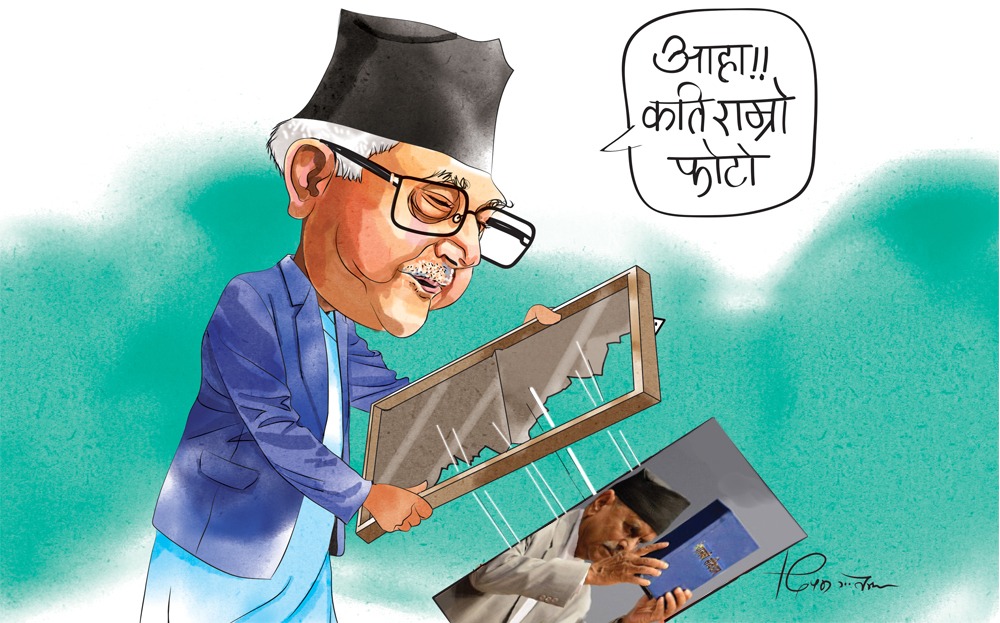KATHMANDU: The coalition government of the CPN-UML and Nepali Congress, commanding a strong majority in the House of Representatives, has amended 29 laws through ordinances.
The changes include provisions allowing Giribandhu Tea Estate to sell or mortgage land beyond the legal ceiling and facilitating relief for individuals like Min Bahadur Gurung and Chudamani Sharma, who are facing corruption charges with financial penalties imposed by the courts.
According to the Prime Minister’s Office, the amendments were introduced to improve the economic and business environment and to boost investment.
Eleven laws were revised for economic reforms, 13 for promoting good governance and public services, and three relating to land and forest management.
A single ordinance encompassed amendments to 27 laws, while two separate ordinances were sent to the President’s Office for approval to amend the Financial Procedures and Fiscal Accountability Act 2019, and the Privatization Act, 1993.
The ordinances altered land ceiling laws, allowing real estate developers to obtain approval to develop and sell plots exceeding the ceiling, benefiting estates like Giribandhu Tea Estate.
They also addressed criminal procedures, removing the requirement for detainees appealing court-imposed fines or damages to stay in custody, thus providing relief to corruption-accused individuals.
What provisions have the three ordinances sent to Sheetal Niwas by the Congress-UML government made?
Here are the key points obtained from the Prime Minister’s Office source via Khabarhub:
The ordinances have simplified the process of confiscating criminal assets and tools used in criminal activities, removing existing legal hurdles.
Vehicles submitted as evidence in court cases can now either be auctioned immediately or, after depreciation is accounted for, returned to the owner upon posting a bond for their use.
In government-initiated criminal cases eligible for reconciliation, if the victim and the accused reach a settlement, penalties and fines imposed by the court will be waived to ensure justice for the victim, even during the implementation phase of the verdict.
The ordinances aim to end the injustice faced by individuals who are imprisoned for failing to pay fines or compensation ordered by the initial court and later found innocent upon appeal. Instead of requiring the full amount of fines or compensation set by the initial court, only 15% of the initial court’s imposed bail amount will need to be deposited.
First-time offenders sentenced to one year or less of imprisonment will be allowed to pay a monetary penalty in place of serving the prison term.
Amendments have been made to land ownership laws for real estate businesses. While the current system provides a limit exemption for landholding in real estate, it prohibits selling land exceeding the limit. The new provision allows real estate developers to seek approval for holding land beyond the limit, provided it is developed and sold within a specified timeframe. However, land designated for public purposes cannot be used as collateral, mortgaged, or sold.
Land-related reforms allow those occupying unregistered lands such as forests or market areas for extended periods to claim ownership under specific conditions.
Provisions were also made to simplify government decision-making, enhance e-governance through the Nagarik App, and streamline processes in local governments.
Additional changes include extending the retirement age of workers to 60 years, linking social security allowances with national ID cards, introducing pension schemes for teachers, and enhancing the effectiveness of health insurance by mandating local-level service providers.
Non-resident Nepali citizens and their families are granted visa waivers for up to 10 years, and multi-entry visas for up to two years per visit.
Compensation for crime victims can now be claimed by family members in the event of their death. Acid attacks were reclassified as severe crimes, separate from domestic violence.
Economic reforms enable IT-based companies to establish subsidiaries and branches abroad and repatriate earnings. Non-resident Nepalis can now open companies in Nepal without lengthy processes.
Provisions are introduced to attract foreign investment in specialized funds and allow revenue disputes of up to Rs 30 million to be resolved without prosecution by revenue authorities.
Changes have been made to the previous system, allowing the Internal Revenue Department/Customs Department to make decisions through correspondence without filing a case with the Revenue Investigation Department for revenue disputes up to Rs 30 million. In such cases, the decision can be made without waiting for a verdict to recover the dues, and a settlement can be reached if fines and dues are paid.
Other key amendments include extending tax benefits to service industries in special economic zones, relaxing procedures for starting or shutting down companies, addressing irregularities in social security allowances, and simplifying asset management in public enterprises.
The ordinance also revised budget formulation processes, setting timelines for medium-term expenditure estimates and budget drafting. It allowed reallocation of funds during emergencies, provided clearer authority to amend and implement programs, and ensured better fund management in federal, provincial, and local governments.
These sweeping changes have drawn mixed reactions, with critics questioning the use of ordinances to enact significant legal reforms bypassing parliamentary debate.









Comment